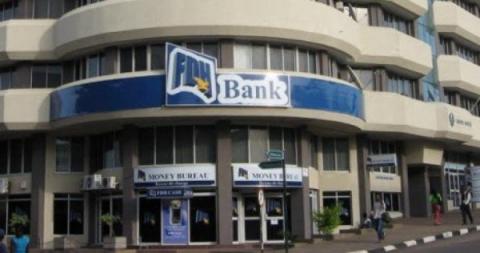
Are you a maize aggregator, soya producer or macadamia farmer and looking for financial support?
NBS Bank is looking for strategic Small and Medium Enterprises (SMEs) in agriculture value chains to support and grow their businesses, in a new initiative by the Bank to contribute to the uplifting of Malawi’s agriculture from subsistence level to commercialization.
Head of Marketing and Customer Experience at NBS Bank, Tamanda Longwe said in an interview that in its five-year strategy, the Bank’s focus is in growing and extending lending to production of sunflower, rice, and other sectors such as fisheries, poultry and animal husbandry—alongside the traditional tobacco and sugar enterprises which the Bank has supported over the years.
Longwe said diversification of produce is an innovative approach as it incorporates a larger variety of produce that can be exported and sold locally, effectively enhancing the economy and growing the national gross domestic product.
“NBS Bank is poised to be a leading Food and Agriculture Bank in Malawi. We are there to support the agro-based economy of Malawi, to be a facilitating partner in the necessary transitions the agricultural sector needs to undertake” she said.
She said strategic and sufficient funding in the sector could pave way for more efficient agricultural practices that take advantage of modern technology.
This would in turn increase efficiency and productivity to meet the necessary demands in an agro-based economy, she added.
“With pressing issues such as climate change and the need for sustainable agriculture, diversification of income streams is necessary for the Malawian economy to thrive.”
“NBS Bank wants to be part of this transition as the leading bank in agricultural value chains, by working together with both public and private sector on creating an enabling environment for a strong and resilient agricultural sector,” Longwe said.
In this strategy, the Bank will focus on working with a diverse set of agricultural value chain players such as producers, processors, SMEs and corporate enterprises.
“We want to establish long-term relationships with strong actors in the value chain,” Longwe said.
NBS Bank already has such partnerships with Malawi Government’s Agricultural Commercialization (Agcom) Project which seeks to transform smallholder agriculture from mostly subsistence to commercial.
The Bank is also one of the financial institutions that are participating in the financing of agriculture in Malawi through the Malawi Agricultural & Industrial Investment Corporation (MAIIC).
Longwe said NBS Bank’s partnership with these initiatives provides opportunity for small-scale and emerging farmers to have a competitive chance against large scale farmers in various agriculture value chains.
“Our appetite is diverse, and we want to contribute to key impact areas of the agricultural sector of Malawi,” she said.
Alongside agriculture, NBS Bank is also active in other sectors such as construction, energy and telecommunication.
Agriculture is the bedrock of Malawi’s economy and the country’s major forex earner. However, 80 percent of the farmers are small scale.
These farmers produce predominantly for subsistence needs, a development which experts say is inhibiting optimum productivity of the sector, hence calls for commercialization.



